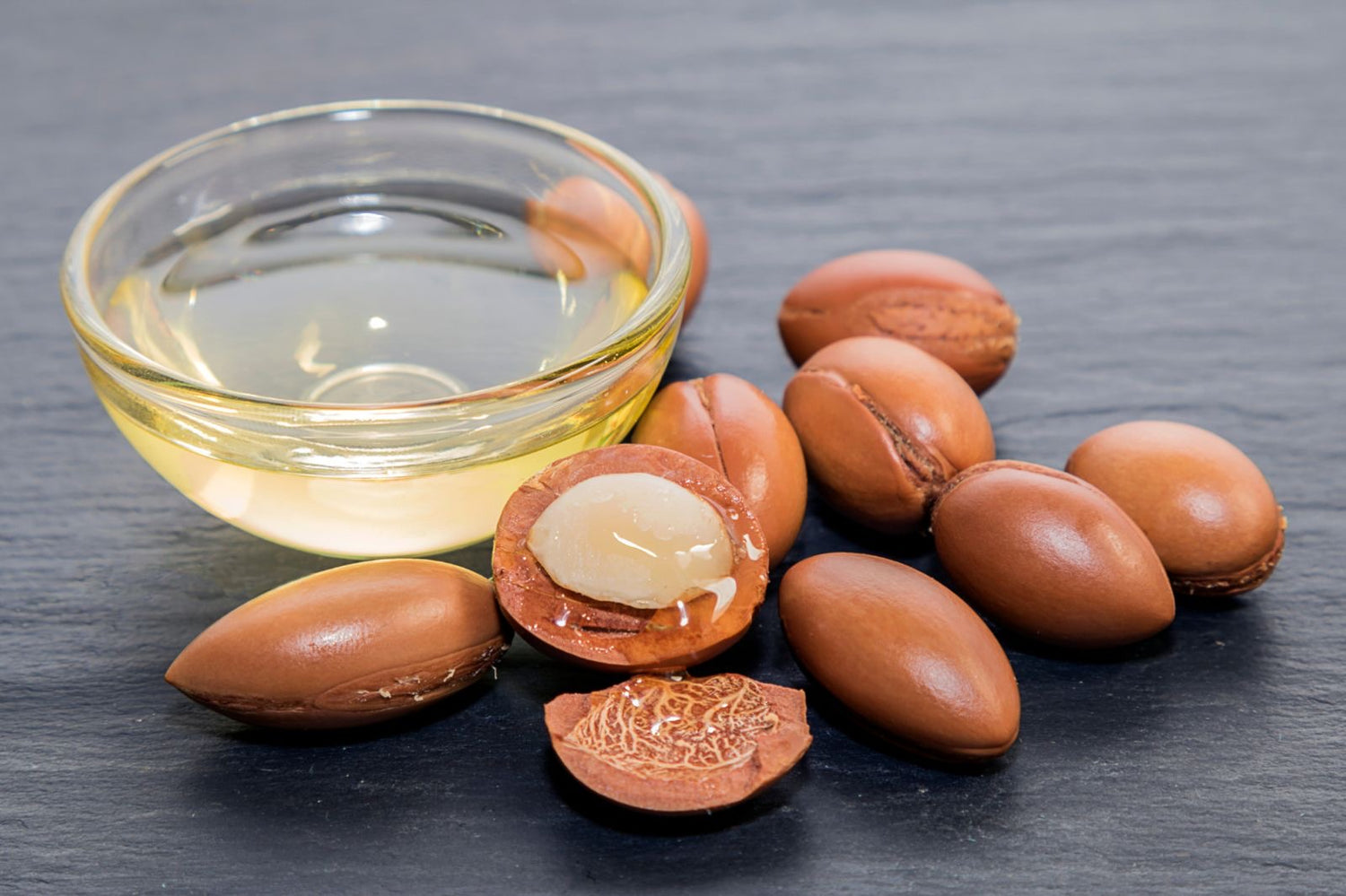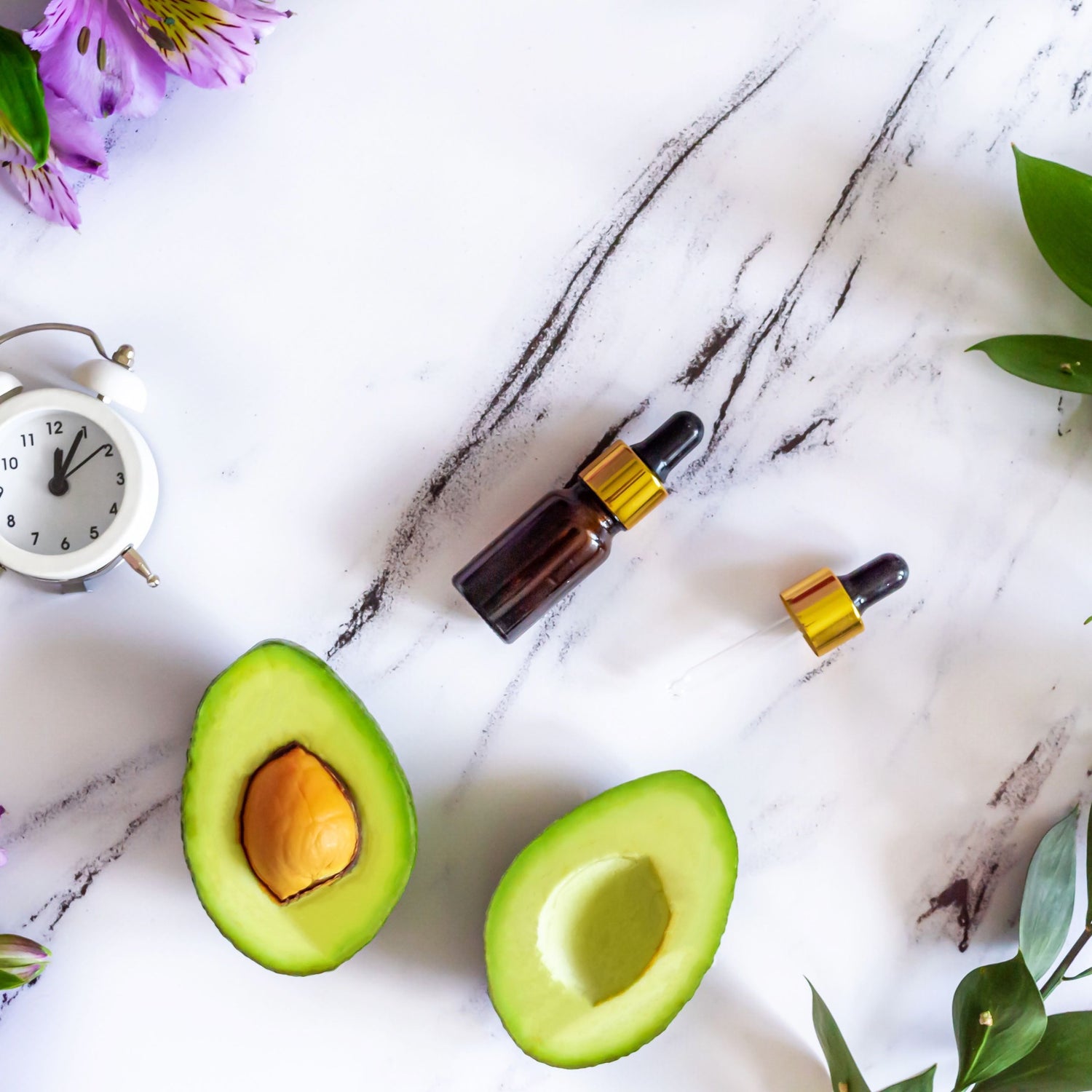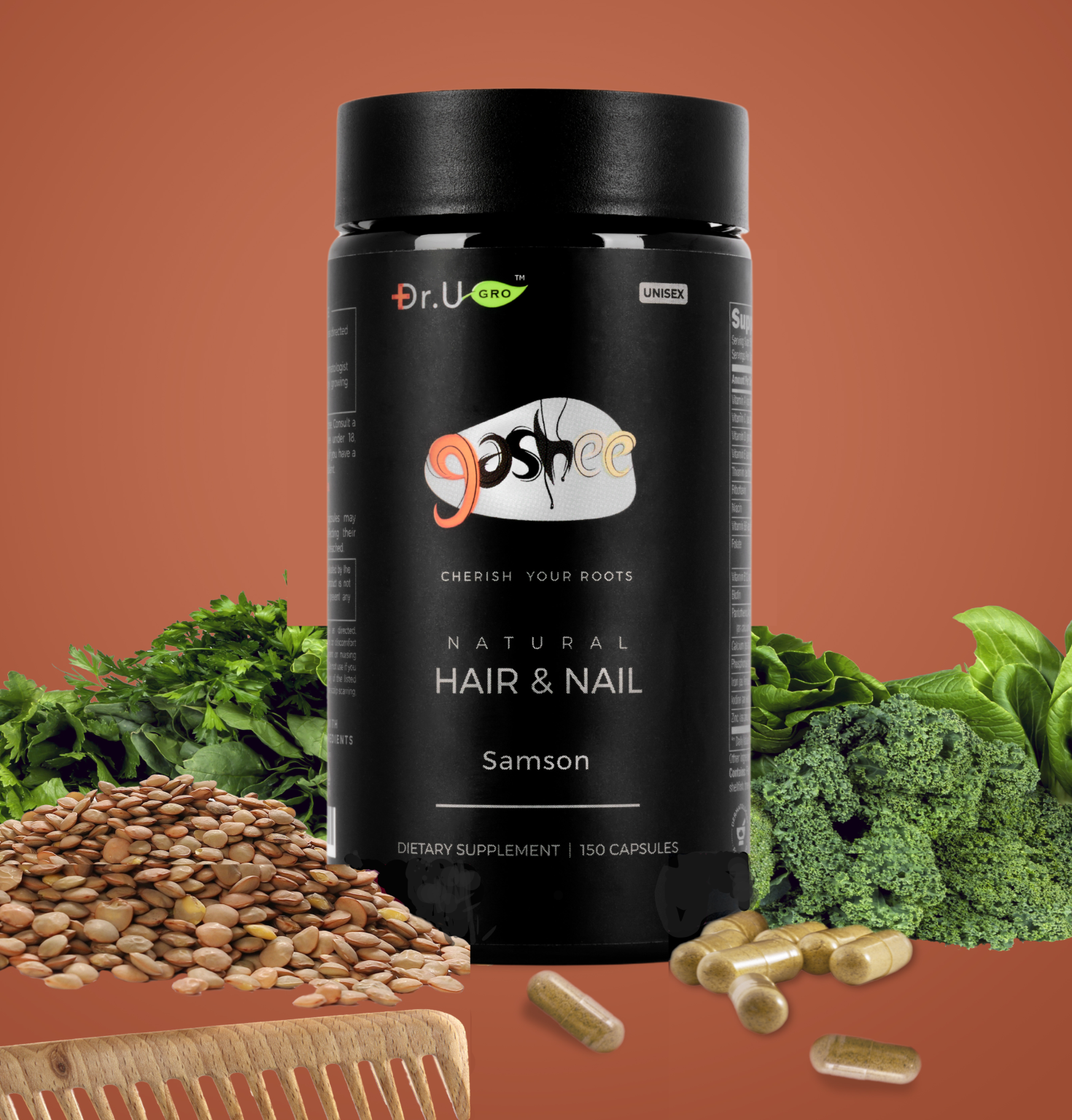Natural Hair Restoration Techniques
It seems that there are natural forms of remedies for just about every area of health. Many people are even seeking solutions for restoring hair growth, softness, and shine naturally without the toxic risks of manufactured chemicals. But is the growing demand for these treatment approaches based on a nostalgia for oral tradition and folk medicine? Or is there actual science behind certain natural ways to restore hair?
Today, modern researchers realize the incredible demand for less toxic solutions that are more synchronized with the needs of our bodies. In their search for empirical answers from the plant kingdom, they conduct controlled studies on a wide range of botanical extracts. This burgeoning area of science reveals new forms of promise for anyone seeking natural ways to restore hair, whether they are hair loss sufferers or those who want to bring out the original beautiful sheen of their hair without artificial chemicals.

At Dr.UGro, we recognize the viable treatment potential of carefully selected plant essences. We understand the organic chemistry perspective behind how certain botanicals contribute to healthier hair. As these conclusions are also supported by research literature, this has been the basis for selecting the ingredients in our product formulations. Here is an overview of each one.
Amla
Amla is a type of fruit from the Indian gooseberry tree. Renowned for its anti-inflammatory and anti-oxidant capabilities, it is packed with beneficial nutrients such as iron, essential fatty acids, calcium, vitamin A, vitamin B, proteins, and phosphorous. Research has found that Amla extract may stimulate the production of derma papilla cells in the hair follicle and extend the anagen growth phase. [Read more]

Apigenin
Apigenin is a bioflavonoid commonly found in foods like celery, chamomile tea, parsley, and onions. Not only is it an anti-oxidant and an anti-inflammatory, but it may also help address another significant hair-loss pathway beyond DHT (dihydrotestosterone), which is the catagen stage (i.e., hair regression) inducer, TGF-B1. In so doing, it may improve cell reproduction in the hair follicle. [Read more]

Vitamin B6
Also known as pyridoxal, vitamin B6 helps turn food into energy and facilitate cell metabolism. Research works have uncovered its potential to reduce hair loss in diffuse alopecia (i.e., genetic hair thinning). Vitamin B6 helps our follicles utilize cystine as an important structural building block when creating new hair strands. [Read more]

Biotin
Deficiency in Biotin (vitamin B7) is studied as a major nutritional factor contributing to hair loss. Deficiencies have been shown to lead to excessive shedding. Researchers believe biotin fortifies the follicles and hair strands. Not all hair loss is from the failure of hair to grow. Excessive hair breakage is a veritable cause of hair loss. Less hair breakage will contribute to fuller hair. Additionally, animal studies have shown biotin could potentially grow hair. [Read more]

Cedarwood Oil
A study on the use of essential oils to treat patients with alopecia areata, published in the Archives of Dermatology, showed that cedarwood and other oils likely increased the blood flow to the scalp, which may help in promoting the hair follicles to produce hair. Another study showed that cedarwood oil might be used in aromatherapy, which can complement other practices for stress-related hair loss. [Read more]

Eclipta Alba
Eclipta Alba is an Ayurvedic herb reputed to slow aging and regenerate hair, teeth, and bones. It was shown to outperform Minoxidil by possibly elongating the active hair growth phase and shortening the resting phase in animal models. Studies with humans found that Eclipta Alba reduced hair loss in subjects. [Read more]

Eugenol
Eugenol is a colorless liquid in essential oils like clove oil. Shown to reduce sebum secretion, studies have revealed its potential as a natural 5a-reductase inhibitor to lower DHT in the blood system. Eugenol is also a potent antioxidant and antimicrobial that can help keep hair follicles in their healthiest state. [Read more]

Fenugreek
Fenugreek is prized for its rich protein and nutrient content. Research shows that fenugreek is a potent anti-inflammatory and anti-microbial. In controlled studies, Fenugreek was shown to increase the number of anagens (i.e., actively growing) hairs, reduce shedding and improve thickness and volume in men and women. This natural product was found to perform comparably to the pharmaceutical minoxidil (2%) in animals. [Read more]

Flaxseed Oil
Flaxseed oil is recognized in research as a rich, abundant source of therapeutic compounds that can potentially benefit a wide range of health areas. When used as a supplement, Flaxseed oil has been shown to grow hair in animal models. Flaxseed oil includes powerful antioxidants, such as phenols, flavonoids, and lignans, promoting the healthy growth of cells. [Read more]

Gamma Linoleic Acid
Gamma Linoleic Acid (GLA) is found in borage seeds and Evening Primrose. As an unsaturated omega 6 fatty acid, it is metabolized by the body to form byproducts that fight inflammation and benefit many health areas. Research on Gamma Linoleic Acid within a natural combination treatment has found that it can improve hair growth in men, possibly by improving blood flow in the scalp. Studies also found that its metabolites may also play a role by blocking 5a-reductase. [Read more]

Glyceryl Oleate
Glyceryl Oleate is formed from two natural compounds, glyceryl and oleic acid. It is an eco-friendly, biodegradable surfactant, emulsifier, and conditioner used in place of sodium Laureth sulfate and silicone for softer, shinier hair. Glyceryl Oleate will leave just the right amount of natural hair oil without stripping it all away and leaving the strands dry and frizzy. It also hydrates the hair. This would potentially benefit those suffering from hair volume loss due to excessive breakage from dry, frizzy hair. [Read more]

Green Tea
Green tea has rich concentrations of a natural phenol called EGCG (Epigallocatechin Gallate), a powerful antioxidant. In studies, EGCG enhances dermal papilla cell reproduction within the hair follicle. Mice with hair loss who consumed liquid green tea extract experienced marked hair growth improvement. Studies on human males showed that EGCG from green tea reduces 5a-reductase activity levels. [Read more]

Horsetail Extract
Horsetail is an herb used since antiquity to balance and improve blood flow with anti-inflammatory and antioxidant properties. Studies suggest it could protect and stave off aging processes that affect the follicles. When combined with other ingredients in research studies, horsetail has been shown to incur significant hair growth and thickness, outperforming placebo treatments. [Read more]

Hydrangea
Research has found that hydrangea extract may extend the anagen hair growth stage by inhibiting TGF-B1 (Transforming Growth Factor, Beta 1), which initiates the catagen follicle regression stage. Since TGF -B1 brings about catagen hair fall, inhibiting it carries hair growth potential. Thus Hydrangea, according to studies, may provide a natural means to target a significant hair loss pathway, second to the formation of DHT, which has yet to be addressed by pharmaceutical drugs. [Read more]

L-Cysteine
L-Cysteine is a type of amino acid necessary for normal hair follicle development. Research has found that it is needed to make a calcium-binding hair follicle receptor. Thus it may help follicles utilize calcium to make new hair strands. In a study where it was used with retinol, subjects experienced improvements in diffuse hair loss. L-Cysteine may enhance the anagen growth phase while minimizing the resting phase of hair follicles. [Read more]

Lemongrass Oil
Lemongrass, also referred to as citronella, is a perennial herb native to South East Asia. Several studies have found that lemongrass oil benefits for hair may be supported through its antimicrobial, antioxidant, and anti-inflammatory properties in addition to its use in aromatherapy. [Read more]

Nigella Sativa
When translated, Nigella Sativa refers to black seeds or black cumin. Packed with proteins, minerals, alkaloids, and saponin, along with its antioxidant and anti-inflammatory capabilities, it offers immense benefits for hair follicles. A study on subjects with telogen effluvium, a 0.5% Nigella Sativa serum outperformed a placebo to improve hair density and thickness. [Read more]

Oleanolic Acid
Oleanolic acid is a pentacyclic triterpenoid, a compound found in many types of medicinal plants that improve cell communication. It has been shown to grow hair in treatments comprised of multiple herbal extracts. Research has shown that oleanolic acid can lower DHT levels by blocking the 5a-reductase enzyme and by stimulating the production of new matrix cells in the hair follicles. [Read more]

Oleic Acid
Oleic acid is an omega 9 fatty acid that may enhance skin permeability. It is commonly found in vegetable fats. Along with other types of fatty acids, oleic acid was included in a study for use in a cutting-edge topical drug delivery mechanism, helping a 5a-reductase inhibitor improve its availability to hair follicles. [Read more]

Peppermint Oil
Researchers have found that peppermint oil reduces sebum production in the skin by blocking 5a-reductase and thus lowering DHT in the body. It may act as a natural alternative to synthetic DHT inhibitors geared towards managing pattern baldness. Peppermint oil can also improve skin penetration and the bioavailability of topically applied treatments, making it possible to affect the hair follicles with greater potency. [Read more]

Polygonum Multiflorum
Polygonum multiflorum, also known as Fo-Ti, has been used for centuries in Chinese medicine. Studies on hair loss sufferers affected by various causes consumed the herb. After treatment with polygonum multiflorum, the subjects noticed a major improvement in hair loss, growth, and a reduction in shedding. Topical applications with Eclipta Alba also revealed significant hair loss improvement. [Read more]

Pumpkin Seed Oil
In a widely known research study, men with moderate signs of genetic baldness who consumed pumpkin seed oil gel capsules showed improved hair growth and reduced spans of baldness. Pumpkin seed oil has very high concentrations of beta-sitosterol, which can block the 5a-reductase enzyme to minimize DHT in the bloodstream. [Read more]

Red Ginseng
Researchers used red ginseng combined with cortisone injections in patients with alopecia areata. They found that it significantly improved hair loss conditions compared to the cortisone injections alone. Red ginseng may work by stimulating the production of VEGF, which promotes new blood vessel development. It may also obstruct the 5a-reductase enzyme and even help new dermal papilla cells to form at the base of hair follicles. [Read more]

Rosemary
A well-known research study using rosemary and other essential oils significantly improved hair growth in patients with an immune-related hair loss disorder called alopecia areata. It is believed that Rosemary oil stimulates blood flow to the scalp. It is also antimicrobial, which staves off inflammation that could harm the follicles. The rosemary essence may also cause hair growth by blocking 5a-reductase to lower DHT levels, as shown in mice. [Read more]

Safflower Floret Extract
In one experiment, Safflower extract, also called Carthamus Tinctorius, derived from the flower parts of the plant outperformed other plant essences when blocking 5a-reductase. In another research study, it was shown to inhibit TGF-B1, which induces apoptosis (i.e., cell death) in cultured hair follicle cells. [Read more]

Saw Palmetto
Saw palmetto extract is derived from the fruit of a palm-like plant. It is well known as a natural extract that can potentially benefit genetic pattern baldness because of its ability to lower DHT. DHT is the primary cause of androgenic hair loss. Research suggests that saw palmetto may outperform the effectiveness of Finasteride ( a pharmaceutical drug that blocks 5a-reductase to lower DHT). [Read more]

Tall Oil
Tall oil is a golden-colored oil derived from the pulping process of pine trees. The main constituent is a plant sterol called B-sitosterol. Research shows that tall oil's ability to lower cholesterol also reduces the hormone testosterone biosynthesis. Less testosterone also means less DHT in the body’s system. [Read more]

Turmeric
Turmeric, a bright yellow-colored spice also referred to as Curcuma Longa, has been studied by scientists for potential use in treatments that involve the suppression of DHT (dihydrotestosterone) and TGF-B (transforming growth factor-beta). In fact, one study showed how turmeric seemed to block the uptake of the 5a-reductase enzyme, which is responsible for converting testosterone into DHT. [Read more]

By bringing together hand-selected, carefully researched plant essences from all across the world, Ugro recognizes that there are highly effective, natural ways to improve hair health and support naturally growing hair and revamping luster by improving and nourishing the scalp environment that sustains the hair follicles.
As a final note, remember that the overall health of our bodies impacts the health of our hair follicles. Therefore, always strive for the highest levels of well-being through your food, activity, and lifestyle choices. You’ll be thankful you did.
Effective Hair Products with These Ingredients
Dr.UGro Gashee Natural Botanical Hair products are formulated, tested, and approved by Dr. Sanusi Umar, a dermatologist and hair transplant specialist. Using a combination of herbal extracts and oils, they are produced through a cold formulation process to avoid the destructive effects of heat. Gashee Hair Serum, Pomade, and Oral Supplements are effective for deeply nourishing and promoting hair growth to ensure your maximum hair health.
The formula is ideal for all individuals across all ethnic groups and ages with hair concerns. It is especially effective for those suffering from hair loss caused by braids, dreadlocks, weaves, and other tight hairstyles. Click the photo below to learn more or shop now!
Frequently Asked Questions
Would any natural ingredient cause hair growth in everyone?
There are myriads of causes of hair loss, ranging from DHT, TGF- B1, hair breakage, Nutrition lack, etc. No one ingredient or pharmaceutic would address all these issues in everyone. Rather a holistic approach is necessary. There is an advantage in having several ingredients in one product with different ingredients impacting different causes of hair loss.
Will Dr. UGro's hair products work for everyone?
Dr.UGro consists of several hairs benefiting natural ingredients carefully selected and dermatologist-formulated to benefit from their natural hair benefits. It supports growing hair to cause vibrant, strong silkier hair. All hair treatment approaches will need to account for individual variables, such as the severity level and the cause of conditions like hair loss, dryness, and general damage. Results from using Dr.UGro products will vary for each person.
In product form, how do I know that the packaged ingredients have retained their inherent properties?
During the blending phase, which combines the ingredients, the herbal extracts are processed using our proprietary cold-pressed technology, which prevents them from being denatured by heat. Our products also include natural preservatives and antimicrobials for long shelf life.
How can a topical natural hair restoration method work if the hair follicles are below the skin?
UGro ingredients include natural skin penetrants, noted above, studied in research experiments to enhance depth penetration. With these agents, our ingredients are more effectively available to the hair follicles.





